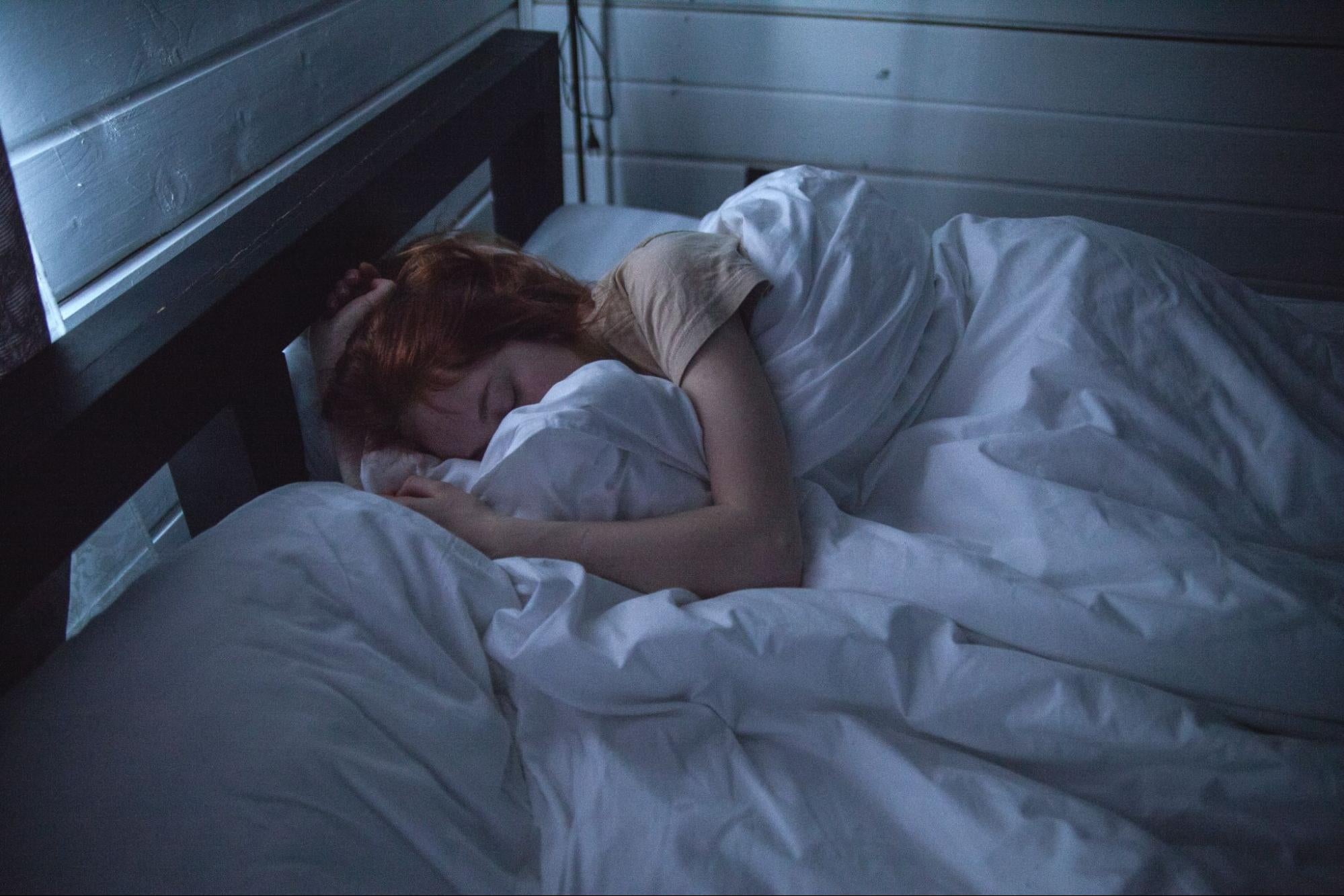
11 Steps to a Good Night's Sleep: How to Get Deep, Restful Sleep
Do you often feel exhausted and run down? Are you struggling to focus at work or find the energy to exercise? You may be suffering from a lack of restful, deep sleep. Getting good sleep is essential for maintaining our physical and mental health, yet many of us don't get enough shut-eye.
Millions of people around the world suffer from insomnia and other sleep disorders that prevent them from getting the deep sleep they need. If you're one of them, don't despair! There are a number of things you can do to improve your sleep.
In this blog post, we'll share 11 tips to sleep that will leave you feeling well-rested and energized in no time.
What is Deep Sleep?
Before we get to the tips on how to get deep sleep, let's first define deep sleep.
Deep sleep, also known as slow-wave sleep, is a stage of sleep when your brain waves are at their slowest. This type of sleep is important for physical and mental restoration. It helps to promote tissue growth and repair, bolster immunity, and support healthy hormone levels.
Deep sleep is different from light sleep, which is the type of sleep you usually enter first when you drift off. Light sleep is a shallower stage of sleep from which you can be easily awakened. You may experience brief periods of deep sleep throughout the night, but most people spend more time in light sleep than deep sleep.
There are four stages of sleep: light sleep, deep sleep, REM (rapid eye movement) sleep, and awake. Most people cycle through all four stages several times throughout the night.
What to Do for Deep Sleep?
So, how to get more deep sleep? Well, there are a number of things you can do. The following are 11 tips for deep sleep that will have you snoozing soundly in no time:
Rule out any sleep disorder

The first thing you should do if you're struggling to get deep sleep is to rule out any underlying sleep disorder. If you have trouble falling asleep or staying asleep, wake up frequently during the night, or always feel exhausted despite getting a full night's rest, it's worth talking to your doctor about a possible sleep disorder.
Create a bedtime routine

One of the best ways to ensure deep sleep is to create a bedtime routine and stick to it as much as possible. This means going to bed and waking up at the same time each day, avoiding caffeine and alcohol in the evening, and winding down for 30 minutes before sleep with relaxation techniques such as reading or journaling.
Exercise regularly

Exercise is a great way to improve your sleep. Just make sure not to exercise too close to bedtime, as this can actually have the opposite effect and make it harder to fall asleep.
Avoid screen time before bed

The blue light emitted from screens can disrupt our natural sleep cycles. So, if you want deep sleep, it's important to avoid screen time for at least an hour before bed. For example, you could read a book or take a bath instead of scrolling through social media.
Keep a cool, comfortable bedroom

A cool, comfortable bedroom is key for deep sleep. Make sure your room is dark and free from noise to create the ideal environment for sleep. Moreover, the ideal temperature for sleep is between 18-22 degrees celsius. So, crank up the AC or open the windows to let in some fresh air if you need to.
Deep breathing exercises

Deep breathing exercises are a great way to relax before bed and promote deep sleep. Try this simple exercise - inhale slowly for four counts, hold your breath for seven counts, then exhale slowly for eight counts. Repeat this cycle several times until you feel calm and sleepy.
Get a comfortable bed, mattress, and pillow

One of the most underrated aspects of deep sleep is having a comfortable bed, mattress, and pillow. If you're constantly tossing and turning at night, it's time for an upgrade. Invest in a quality mattress and bedding to ensure deep sleep. Memory foam mattresses are a great option for side sleepers as they provide support and pressure relief.
Limit caffeine intake

Caffeine is a stimulant that can stay in your system for up to six hours. So, if you're trying to get deep sleep, it's important to limit your caffeine intake throughout the day. For example, avoid coffee after lunch and switch to decaf in the evening.
Get yourself exposed to some bright morning sun

Sunlight helps to regulate our natural sleep cycles. So, if you want deep sleep, make sure to get yourself exposed to some bright morning sun. This will help to wake you up and prepare your body for sleep at night. Sunlight will directly affect your body's hormones and how it functions. That is, the sun helps to promote the release of melatonin, which is the hormone that makes you feel sleepy.
Reduce long or irregular daytime naps

While naps can be helpful in restoring energy levels, long or irregular daytime naps can actually interfere with deep sleep at night. If you find yourself taking multiple naps during the day, try to limit them to 30 minutes or less. This will help ensure that you're not throwing off your natural sleep cycle.
Take a melatonin supplement

This is the last resort before you seek professional help. Melatonin supplements can be helpful in promoting deep sleep. Melatonin is a hormone that helps to regulate our natural sleep cycles. Other sleep supplements you can consider taking include lavender, L-theanine, magnesium, Valerian root, glycine, and Ginkgo Biloba. So, taking a supplement can help to promote deep sleep. Just make sure to talk to your doctor before starting any new supplement, as they can interact with other medications you're taking.
These are just a few tips for deep sleep. If you find that you're still struggling to get deep sleep, it's important to talk to your doctor. There could be an underlying medical condition that's interfering with your sleep. For example, sleep apnea is a condition that can cause people to wake up multiple times throughout the night. So, if you're not getting deep sleep, make sure to talk to your doctor and get tested for sleep apnea.
If you're struggling with irregular sleep patterns, Ayurveda offers a gentle and holistic solution. Instead of relying on chemical-based sleep aids, consider exploring Ayurvedic medicine for sleep that works in harmony with your body to calm the mind, reduce stress, and promote deep, restful sleep.






Leave a comment
This site is protected by hCaptcha and the hCaptcha Privacy Policy and Terms of Service apply.